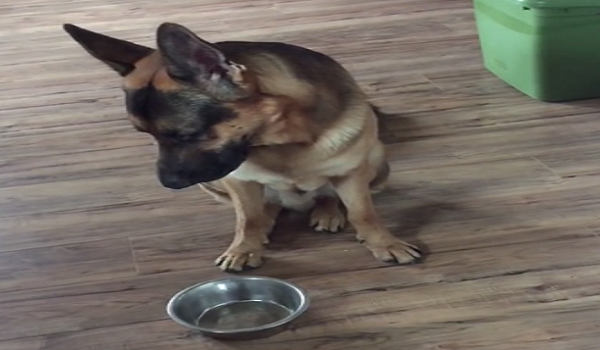As a pet lover like many of you, I often find myself pondering about the human foods that are safe for our furry companions. The question on many pet owner’s minds is: can dogs eat grapefruit? The citrusy tang and nutritional punch of grapefruit make it a favorite for us, but what about for our dogs? Dr. Jerry Klein, AKC’s Chief Veterinary Officer, has given us some insight, suggesting that while the flesh isn’t toxic to dogs, it’s not the best fruit choice for them due to its high levels of citric acid. This can lead to gastrointestinal irritation, making grapefruit and dogs a concerning combination for their health.
Many of us might wonder, is grapefruit safe for dogs? And as responsible pet owners, we must weigh the risks that come with feeding them this fruit. It’s imperative to ensure that the alluring grapefruit sitting on our kitchen counters remains out of reach from our curious canines to avoid any potential harm.
Can Dogs Eat Grapefruit? Yes, they can, but not recommended.
- Grapefruit, due to high citric acid, may irritate your dog’s gut.
- The flesh of the fruit is non-toxic but still not recommended for dogs.
- Disposal of grapefruit rinds and skin should be secure to prevent canine access.
- Signs of gastrointestinal upset indicate the need for veterinary attention should dogs ingest grapefruit.
- Always consider less acidic, dog-friendly fruits as occasional treats.
Introducing Grapefruit and Canine Diets
As a devoted pet parent, I’m always on the quest to understand what foods can add variety and nutrition to my dog’s diet. When it comes to human favorites like grapefruit, it’s important to investigate if they hold the same health benefits for dogs that they do for us. Grapefruits are known for their rich vitamin content, but the conversation changes when we consider our canine companions.
Understanding Grapefruit’s Nutritional Profile
The vibrant, juicy grapefruit certainly has a reputation for being a powerhouse of vitamin C. It’s a go-to for many looking to boost their immune system or seeking a refreshing, healthy snack. But in the world of canine diet and grapefruit, the benefits aren’t as clear-cut. Dogs produce their own vitamin C, making supplementation unnecessary, and the high acidity of this citrus fruit could potentially be more troublesome than beneficial for them.
The Tangy Taste of Grapefruit: Will Dogs Enjoy It?
The sharp, sour taste of grapefruit that can wake up our senses in the morning is likely to turn off a dog’s appetite. Their pallet is tuned to pick up on bitter flavors, often a sign for them to stay away. I’ve learned from experts like Purina Senior Nutritionist Jan Dempsey that this natural aversion might actually be a defense mechanism, helping to guard them against the health risks of grapefruit that stem from its high acid content. So although I might enjoy a slice of grapefruit, I’m now more aware that offering the same to my dog could lead to digestive issues, rather than any discernible health advantages.
Can Dogs Eat Grapefruit and Its Effects on Canine Health
As I delve into the subject of whether our furry friends can share in the vibrant and tangy fruit that is grapefruit, it’s crucial to recognize the balancing act between nutritional potential and health risks. While some pet owners may wonder about incorporating diverse flavors into their dog’s diet, the question of safety with grapefruit consumption comes to the forefront. So, let’s uncover the effects of grapefruit on canine wellness.
Grapefruit Flesh: Is It Safe for Your Dog?
From time to time, as dog owners, we may find ourselves pondering the safety of feeding grapefruit to dogs. While the occasional small bite of grapefruit flesh is not immediately toxic, experts from the veterinary and nutrition world, such as Dr. Jerry Klein and Jan Dempsey, generally discourage it. The risk here isn’t about toxicity in the traditional sense; it’s more about the consequences of the fruit’s highly acidic makeup on a dog’s delicate digestive system.
The Role of Citric Acid in Dogs’ Digestive Health
The term ‘citric acid’ might conjure up thoughts of a refreshing citrus tang for us, but for our canine companions, it’s a different story. Citric acid, abundant in grapefruit, is a known disruptor of dogs’ gastrointestinal tracts. The aftermath of ingesting this acid can range from mild to severe cases of upset stomach, including symptoms like loose stool and vomiting. It underscores a vital point: non-toxic doesn’t always equate to safe, especially when it comes to the question of grapefruit toxicity in dogs.

While sharing food with our pets is an act of love, caution is paramount when it comes to what we place in their bowls. The adage ‘what’s good for the goose may not always be good for the gander’ holds true in the case of feeding grapefruit to dogs. Their health and happiness hinge on our informed choices as responsible pet parents.
Grapefruit Toxicity in Dogs: Recognizing the Signs
As a dog owner, one of my biggest concerns is the safety of my furry friend when it comes to their diet. I’ve learned that the risks of feeding grapefruit to dogs can be quite serious, and it’s crucial to be aware of the symptoms that might indicate grapefruit toxicity. Understanding the potential harm can aid in ensuring optimal grapefruit and canine health.
The most easily recognizable signs of grapefruit toxicity in dogs include gastrointestinal distress — primarily vomiting and diarrhea. These symptoms are serious because they can cause dehydration and nutrient imbalances very quickly. Additionally, you might notice your dog drooling more than usual or showing signs of weakness, which can also be a result of the citrus’s impact.
Interestingly, grapefruit isn’t harmful solely because of the citric acid or sour taste; the real danger lies within the rind. In fact, grapefruit rind contains essential oils and psoralens, which are toxic to dogs. These compounds can interfere with a dog’s metabolism and nervous system. If my dog ever got into grapefruit, especially the rind, I’d be on high alert for any unusual behaviors that might follow.
Keeping an eye on your dog after they’ve consumed grapefruit is paramount. Any indication of gastrointestinal discomfort warrants immediate attention. Pet owners like myself must remain vigilant, even if the consumption was accidental. Our role as protectors of our canine companions is critical, especially when confronting the hidden dangers of seemingly harmless foods like grapefruit.
Alternative Fruits and Canine Taste Preferences
As much as I enjoy a tangy slice of grapefruit, I’ve learned that when it comes to my furry companion’s diet, what’s good for me isn’t always right for them. The question, “can dogs have grapefruit?” is a common concern among dog owners aware of grapefruit and dogs’ digestive systems vulnerabilities.
Dogs make decisions on what to eat based not just on smell and taste, but also on their innate knowledge of what’s good for them. Instinctively, they tend to shy away from foods that may cause them harm, and this includes the bitter flavors of grapefruit.
How Dogs Decide What Foods to Enjoy or Avoid
Their keen sense of taste, geared towards meats and certain carbs, doesn’t favor the bitter and acidic nature of grapefruits. This natural discretion conveniently corresponds with the health reality that grapefruit, while healthy for humans, is not conducive to canine health due to its acidity and possible disruption of their digestive tract.

Fruits That Are Friendlier to Dogs’ Palates
To ensure I’m offering the best treats, I’ve turned my attention to fruits that are more suited to my dog’s taste and digestive system. Apple slices, with the seeds carefully removed, and mashed bananas have become my go-to options. Less acidic and sweet, they are more aligned with my pup’s palate, and significantly less likely to cause the digestive upset that grapefruits might provoke.
It’s delightful to spoil my furry friend with treats, but I always remember the golden rule that such indulgences should not exceed 10% of their overall daily caloric intake, ensuring their health and happiness for many years to come.
Grapefruit and Dogs: Handling Potential Health Risks
As someone passionate about canine welfare, I want to emphasize the importance of being vigilant when it comes to what we feed our furry companions. Specifically, the question, “is grapefruit safe for dogs?” is one that merits attention. While we might enjoy this citrusy fruit for its tangy flavor and health benefits, it’s crucial to understand that grapefruit and dogs don’t mix well.
Should your dog accidentally ingest grapefruit, it’s essential to keep a keen eye on them for any adverse reactions. This includes watching out for signs of gastrointestinal upset such as vomiting or diarrhea, and for any unusual skin reactions. Grapefruits can not only affect your dog’s stomach but also cause photosensitivity, leading to skin issues.
If you observe any of these symptoms, don’t hesitate to seek prompt veterinary care. Remember, while grapefruit’s vitamin C might be tempting to share with your pooch, it’s best to err on the side of caution and avoid offering this fruit to them altogether. There are plenty of dog-safe fruits that can be enjoyed without the potential health risks associated with grapefruit.
Emergency Measures: What If Your Dog Eats Grapefruit?
Discovering that my dog has eaten grapefruit, especially the rind, naturally becomes an urgent matter. Beyond knowing which foods are safe, it’s critical that I’m prepared to act swiftly and appropriately when the unexpected happens. Vigilance is key to preventing harm and ensuring the wellbeing of my furry companion.
Immediate Actions to Take for Grapefruit Ingestion
If I find that my dog has eaten grapefruit, swift action is required. The first step is to remove any leftover fruit, ensuring no further ingestion occurs. Then, I monitor for symptoms such as changes in behavior, discomfort, or digestive upset. Feeding grapefruit to dogs can provoke several reactions, and identifying them early can make a significant difference in treatment. Contacting the vet immediately is the next course of action, as they can provide guidance on necessary interventions.
When to Seek Veterinary Assistance for Grapefruit Consumption
Should my dog exhibit any adverse reactions after eating grapefruit, I am aware that there is no time to waste. Signs of concern include vomiting, diarrhea, or lethargy, indicating the need for veterinary assistance. The professional steps taken by the veterinarian will often include a thorough examination and various diagnostic tests to rule out any serious complications and ensure my dog’s safety. Understanding that can dogs eat grapefruit has risks attached, it’s clear to me that proactivity and knowledge are invaluable in these scenarios.
Sharing Citrus with Canines: A Guide to Safe Options
When it comes to enhancing canine diet and grapefruit counterparts, I always look for safer alternatives that won’t upset my dog’s stomach or health. Surprisingly, not all citrus is off-limits. Fruits like oranges and tangerines can be a sweet treat for dogs when given in moderation. For fellow pet owners seeking to share citrus with their furry friends, offering a single segment of these less acidic fruits can be a good start.
I’ve found it important to closely observe my dog for any signs of digestive discomfort after introducing citrus. If they handle it well, then it can become an occasional delight, making sure it aligns with the 10% treat rule. This ensures their grapefruit and canine health considerations are met without overdoing it. Always keep in mind, moderation is key to a happy and healthy pup.
Conclusion
When it comes to grapefruit and dogs, as a dedicated pet parent, my exploration into whether canine companions can share in the health benefits of grapefruit designed for humans has led to some crucial insights. Notably, the defining attributes that make grapefruit a nutritious powerhouse for us, may not cross over so favorably into the world of our four-legged friends. The fruit’s inherent high acidity and the potential toxicity of its rinds present clear risks that merit attention and caution.
Summarizing the Risks and Safe Practices
Throughout our exploration, we’ve delved into the critical reasons grapefruit might not be the ideal addition to a pup’s diet. The natural deterrent for dogs seems to be the fruit’s bitterness—a serendipitous instance where their taste preferences align with what’s best for their health. While I may relish the refreshing zest of grapefruit, it’s clear that steering clear of offering it to my companion is the wiser choice, opting instead for safer, less acidic, and dog-friendly fruit options. Exercising such precautions ensures we avoid subjecting our pets to unnecessary digestive distress or the more severe consequences of toxicity.
Emphasizing the Importance of Veterinary Consultation
Moreover, my experience solidifies that no matter how enlightened or informed we might become through research and reading, there is an unbeatable value in seeking personalized guidance from professionals. Consulting with a veterinarian remains an indispensable step to ensure that any dietary inclusions or adjustments for our pets contribute positively to their overall well-being and nutritional balance. This practice not only safeguards their health but also fosters a nurturing and informed approach to our roles as caretakers of our cherished canine companions.
Sharing Citrus with Canines: A Guide to Safe Options
Can dogs eat grapefruit?
Dogs can technically eat the flesh of grapefruit in small amounts as it isn’t toxic, but it’s not recommended due to its high citric acid content that may irritate their digestive system.
What are the health benefits of grapefruit for dogs?
While grapefruit is rich in vitamin C and antioxidants for humans, these benefits do not necessarily apply to dogs. In fact, the high acidity can be harmful to a dog’s digestive health.
Is grapefruit safe for dogs?
Grapefruit is not considered safe for dogs, primarily due to its potential to cause gastrointestinal irritation and the toxicity of its rind and skin.
Understanding Grapefruit’s Nutritional Profile
Grapefruit is high in vitamin C, antioxidants, and fiber for humans, but these nutrients are not required in a canine’s diet in the same way.
The Tangy Taste of Grapefruit: Will Dogs Enjoy It?
Most dogs naturally avoid the tangy, bitter taste of grapefruit, which serves as a protective measure against the potential digestive issues it can cause in canines.
Grapefruit Flesh: Is It Safe for Your Dog?
Even though grapefruit flesh is not toxic, it’s not safe for dogs due to the likelihood of causing digestive upset such as loose stool or vomiting.
The Role of Citric Acid in Dogs’ Digestive Health
Citric acid found in grapefruit can disrupt the delicate balance of a dog’s digestive system, indicating that even non-toxic foods can pose risks.
What are the risks of feeding grapefruit to dogs?
Risks include gastrointestinal upset, loose stool, vomiting, and potentially more severe reactions if the toxic rind or skin is ingested.
What signs of grapefruit toxicity should dog owners look for?
Look for symptoms like vomiting, diarrhea, photo-sensitivity reactions, and visible discomfort. If these symptoms occur, contact your veterinarian immediately.
How do dogs decide what foods to enjoy or avoid?
Dogs largely rely on their sense of smell and taste; they typically avoid foods that are overly bitter or acidic, such as grapefruit.
What fruits are friendlier to dogs’ palates?
Dogs may enjoy less acidic fruits like apple slices (seeds removed) and mashed banana, which are also less likely to cause digestive upsets when given in moderation.
What should I do if my dog shows signs of grapefruit ingestion?
Monitor your dog closely for any abnormal signs and consult a veterinarian if you observe any reactions or if the dog has ingested grapefruit, particularly the rind or skin.
What immediate actions should I take if my dog ingests grapefruit?
Remove any remaining grapefruit from reach, watch for signs of distress, and contact your vet, especially if your dog has consumed the toxic rind or skin.
When should I seek veterinary assistance for grapefruit consumption?
Seek veterinary help immediately if your dog exhibits symptoms such as vomiting, diarrhea, or signs of a skin reaction after eating grapefruit.
Are there safer citrus options for my dog besides grapefruit?
Oranges and tangerines in small amounts can be considered, but always start with a single segment to observe any adverse reactions first.






